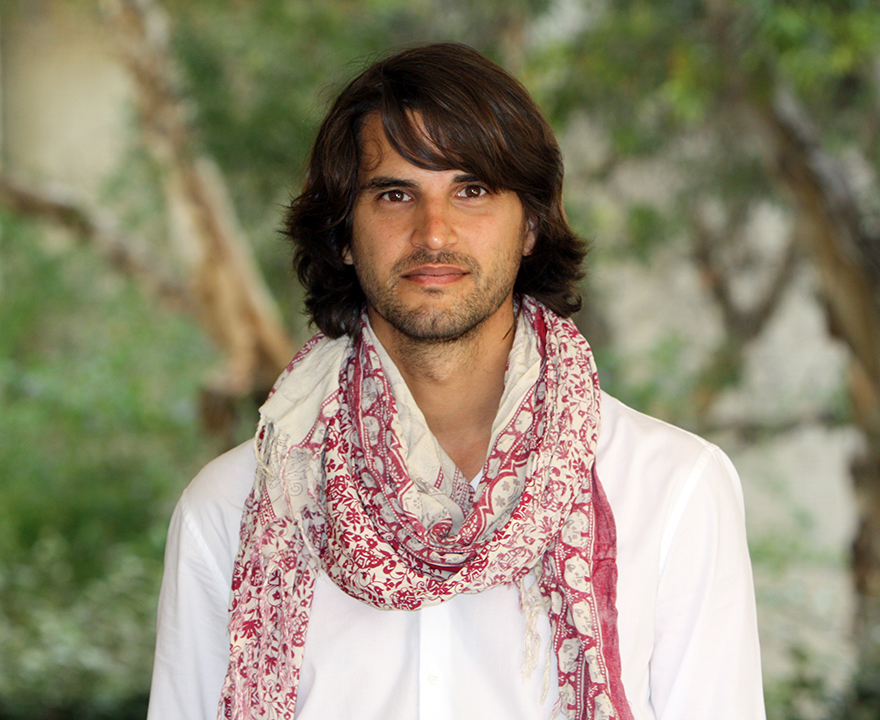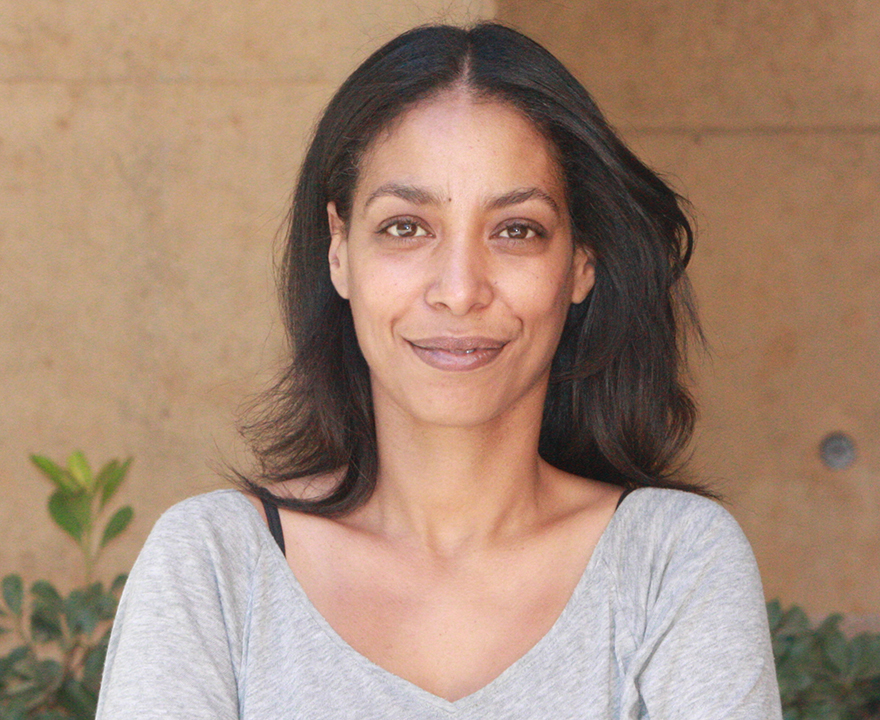Two UCI cognitive scientists awarded early career development awards from National Science Foundation

Two UCI cognitive scientists awarded early career development awards from National Science Foundation
- May 8, 2017
- Grants support efforts to bring neural-level computing to small, low energy devices and research on complex human decision-making models
-----
Can machines be programmed to operate with the efficiency and proficiency of the human brain? When does making a decision move from being goal-directed to something done out of habit? These types of neuro- and behavioral science-centric questions guide the research of many in the Department of Cognitive Sciences who study the biological foundation of perceptual, motor, and higher cognitive capacities. Among them are assistant professors Emre Neftci and Mimi Liljeholm. The two are recent recipients of the National Science Foundation’s most prestigious awards supporting early career development activities. Known colloquially as CAREER Awards, the grants, totaling $1.35 million, will support the scientists’ on-going research on neural algorithms for nanotechnology devices and decision-making, respectively.
 Neftci is the newest addition to the machine-learning arm of the department. He runs
the Neuromorphic Machine Intelligence Lab where he is working on two studies aimed
at building “neuromorphic” computing systems - networks that work more like the brain
- that scale up the speed, processing power and energy efficiency of computing technology
in human-centric tasks. The first study is a joint venture with a team of engineers
from the University of Notre Dame’s EXCEL Center. The group is working on new nanotechnology
that relies on a transistor element designed at Notre Dame that Neftci’s neuromorphic
algorithms can harness. If the group can successfully program Neftci’s neural models
to run on the transistor, the resulting architecture will be novel in its ability
to house memory and processing in one place, similarly to the brain. The step would
be distinct from mainstream computers that rely on architecture where memory and processing
are housed separately, and could pave the way for future developments in nanotechnology,
and even artificial intelligence. The second study, funded by the above-mentioned
National Science Foundation CAREER program, supports the scientist’s on-going efforts
to further define the algorithms and simulations behind his cognitive neural models
so that they can autonomously learn to perform more precise and complex tasks.
Neftci is the newest addition to the machine-learning arm of the department. He runs
the Neuromorphic Machine Intelligence Lab where he is working on two studies aimed
at building “neuromorphic” computing systems - networks that work more like the brain
- that scale up the speed, processing power and energy efficiency of computing technology
in human-centric tasks. The first study is a joint venture with a team of engineers
from the University of Notre Dame’s EXCEL Center. The group is working on new nanotechnology
that relies on a transistor element designed at Notre Dame that Neftci’s neuromorphic
algorithms can harness. If the group can successfully program Neftci’s neural models
to run on the transistor, the resulting architecture will be novel in its ability
to house memory and processing in one place, similarly to the brain. The step would
be distinct from mainstream computers that rely on architecture where memory and processing
are housed separately, and could pave the way for future developments in nanotechnology,
and even artificial intelligence. The second study, funded by the above-mentioned
National Science Foundation CAREER program, supports the scientist’s on-going efforts
to further define the algorithms and simulations behind his cognitive neural models
so that they can autonomously learn to perform more precise and complex tasks.
 Liljeholm, also a computational neuroscientist, is using cognitive modeling and neuroimaging
to better understand human learning and decision-making. One of her research programs
investigates the role of instrumental divergence – the degree to which decisions differ
with respect to their outcome probability distributions – in goal directed choice.
Specifically, in a series of studies funded by the NSF CAREER award, Liljeholm will
combine mathematical models of decision-making with a behavioral gambling task and
neuroimaging, to assess whether instrumental divergence can shape choice preferences,
induce conditioned reinforcement, and arbitrate between goal-directed and habitual
decision strategies. The distinction between goal-directed decisions, motivated
by a deliberate consideration of the probability and current utility of their consequences,
and habits, which are reflexively elicited by cues in the environment based on reinforcement
history, is closely tied to a range of psychopathologies, including addiction, obsessive
compulsive disorder and impulse control disorder. By providing a better understanding
of what factors arbitrate between goal-directed and habitual decision strategies,
Liljeholm’s work may prompt the development of pre-clinical diagnostic assays for
early detection of cognitive, affective and behavioral pathology. The concepts advanced
under her NSF CAREER funded project may also help improve the performance of reinforcement
learning algorithms, for example by using instrumental divergence to specify new optimization
criteria, potentially benefiting medical, industrial and commercial applications of
artificial intelligence.
Liljeholm, also a computational neuroscientist, is using cognitive modeling and neuroimaging
to better understand human learning and decision-making. One of her research programs
investigates the role of instrumental divergence – the degree to which decisions differ
with respect to their outcome probability distributions – in goal directed choice.
Specifically, in a series of studies funded by the NSF CAREER award, Liljeholm will
combine mathematical models of decision-making with a behavioral gambling task and
neuroimaging, to assess whether instrumental divergence can shape choice preferences,
induce conditioned reinforcement, and arbitrate between goal-directed and habitual
decision strategies. The distinction between goal-directed decisions, motivated
by a deliberate consideration of the probability and current utility of their consequences,
and habits, which are reflexively elicited by cues in the environment based on reinforcement
history, is closely tied to a range of psychopathologies, including addiction, obsessive
compulsive disorder and impulse control disorder. By providing a better understanding
of what factors arbitrate between goal-directed and habitual decision strategies,
Liljeholm’s work may prompt the development of pre-clinical diagnostic assays for
early detection of cognitive, affective and behavioral pathology. The concepts advanced
under her NSF CAREER funded project may also help improve the performance of reinforcement
learning algorithms, for example by using instrumental divergence to specify new optimization
criteria, potentially benefiting medical, industrial and commercial applications of
artificial intelligence.
Neftci’s combined project funding for the work totals $960,000 with $335,242 coming from Notre Dame through 2019 and $624,697 expected from NSF in renewals through 2022. Liljeholm’s total NSF project funding is $727,715 through 2022.
-----
Would you like to get more involved with the social sciences? Email us at communications@socsci.uci.edu to connect.
Share on:
Related News Items
- Careet RightDickson receives grant to apply computational cognitive models to language acquisition
- Careet RightNeuromorphic chips are destined for deep learning - or obscurity
- Careet RightAs we age, together: collaboration for a global issue
- Careet RightMaking Artificial Intelligence smarter
- Careet RightBrain and behavior


